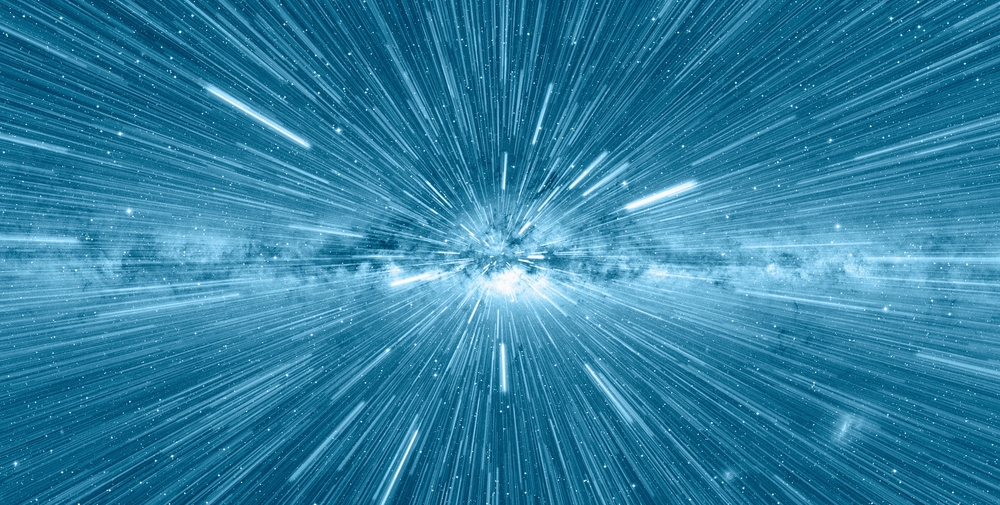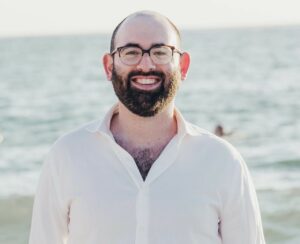Jewish learning My Mythic Tradition: The Many Paths to Rabbinical

 I have always been enamored with stories. How they captivate our attention, help us understand the world around us, and how they help us find meaning in the abyss of monotony. Star Wars, Lord of the Rings, and other great modern myths have long enthralled me with their mystical religions and songs of heroes of long past ages. Stories of freedom from persecution, of the trials and journeys of a human life, the beautiful harmony of feeling connected. I came to rabbinical school at Hebrew College in my mid-thirties, after spending most of the decade plus after finishing my undergraduate degree in a state of spiritual wandering. It took me most of my twenties and early thirties to understand that my inherited tradition was just as mythic, that Torah is the song of my ancestors, and when it’s sung with my voice, its stories and melodies can be a guide out of the ordinary.
I have always been enamored with stories. How they captivate our attention, help us understand the world around us, and how they help us find meaning in the abyss of monotony. Star Wars, Lord of the Rings, and other great modern myths have long enthralled me with their mystical religions and songs of heroes of long past ages. Stories of freedom from persecution, of the trials and journeys of a human life, the beautiful harmony of feeling connected. I came to rabbinical school at Hebrew College in my mid-thirties, after spending most of the decade plus after finishing my undergraduate degree in a state of spiritual wandering. It took me most of my twenties and early thirties to understand that my inherited tradition was just as mythic, that Torah is the song of my ancestors, and when it’s sung with my voice, its stories and melodies can be a guide out of the ordinary.
I left undergraduate with an environmental studies degree and a dream to help mitigate climate change. In my first job after college, I worked for a large corporation in the sustainability industry. I managed project teams, and loved working with people. There were times when I hoped the pay of corporate America would pacify me, but for the most part I was left unfulfilled by my work. I liked the routine, but the routine was still empty. My day to day work was far removed from the dreams I had leaving school. I felt unnecessary and unimportant.
A few years into that first career, I was called for jury duty. It was my first personal experience with the American justice system, and it was impressive. It was impressive how swiftly it moved, how it villainized and isolated individuals, how terrifying and heartless it was. I had been a passive, yet engaged, observer of criminal justice reform efforts in the years before I was called for jury duty in 2015, but never considered myself an activist. I was sympathetic to the Black Lives Matter movement in Fergueson the year before but never courageous enough to get involved myself. That changed after jury duty.
While hearing the case I was assigned to, the rest of the jury and I were to determine the guilt or innocence of a young Black man from a neighborhood in Minneapolis that for decades has been systematically disinvested in and over policed. He was charged with possession and intent to sell crack and powder cocaine. For two days we heard from lawyers and police officers of his guilt, and then it was time to deliberate. A crescendo of questions raced through my mind each night that week, strumming the chords of responsibility for this person’s life. How will their life be impacted by my decision? What will become of him? Who does he want to be? Am I doing what’s best for our world? For him?
Late Friday morning, after two days of deliberation, only a couple others along with myself were still unsure of the defendant’s guilt beyond a reasonable doubt, but the rest of the jury was firm in their conviction, and unwilling to listen. The rest of the jurors asked us “do you really want to come back here on Monday, or can we find him guilty and go on with our lives?” The pressure of the system, of the other jurors, and of the convenience of the rest of my life broke me. We convicted the defendant to eight years in prison. I was broken.
For me, the journey to the rabbinate started as a whisper of a niggun that ear wormed its way into my head through questions. Is this really who I am? Is this how I want to be? Is this how our society should be? What can I do about it? Who is wiser than me and can show me the way? The song would stick in my brain for months at a time, and then would disappear for just as many. I left corporate America and worked as a community organizer at a Jewish non profit—I had no sense for a long term career path. It took me six or seven years after my experience on jury duty to realize what was singing to me was the rabbinate.
So the question is, what stories are singing to you?
Aaron Berc (he/him) is a rising Shannah Aleph student at Hebrew College this year. Originally from Minneapolis, Minnesota, he’s still learning how to be east-coast direct. Aaron received a Bachelor of Science in Environmental Studies with a minor in Physics from the University of Kansas in 2011 – where he also informally studied religious experiences through college basketball. Upon graduation, he moved back to the Twin Cities and worked for five years in the corporate world as a Project Manager at Ecolab Inc. Through years of politicization, including an eye & heart opening stint on jury duty, Aaron joined community organizing efforts in 2016. He joined the staff of Jewish Community Action in 2017 as the Housing Organizer where he helped build powerful campaigns on issues of tenant rights, equitable development, and gentrification. His work culminated in a campaign for a rent control ballot initiative that was won in the fall of 2021 through the Home To Stay coalition. Aaron has long chased transformative Jewish experiences: from Jewish summer camp to USY, and from Jewish organizing to farming at Adamah. In 2021 he completed a Certificate in Jewish Ethics and Social Justice from The Kekst Graduate School at The Jewish Theological Seminary. Aaron is a former college ultimate frisbee player, and he still is a helpless Minnesota Timberwolves fan. You can often find Aaron moving himself about Jamaica Pond on his many walks and runs. He loves to see live music, spend quiet time amongst trees, and be with people he loves while making meaning out of this brief and beautiful life.
Meet Aaron and other Rabbincal School students and faculty at our November Open Houses, Ta Sh’ma (Come & Hear) in person or online. Learn more & register here.
Explore Graduate Programs Support Our Work
